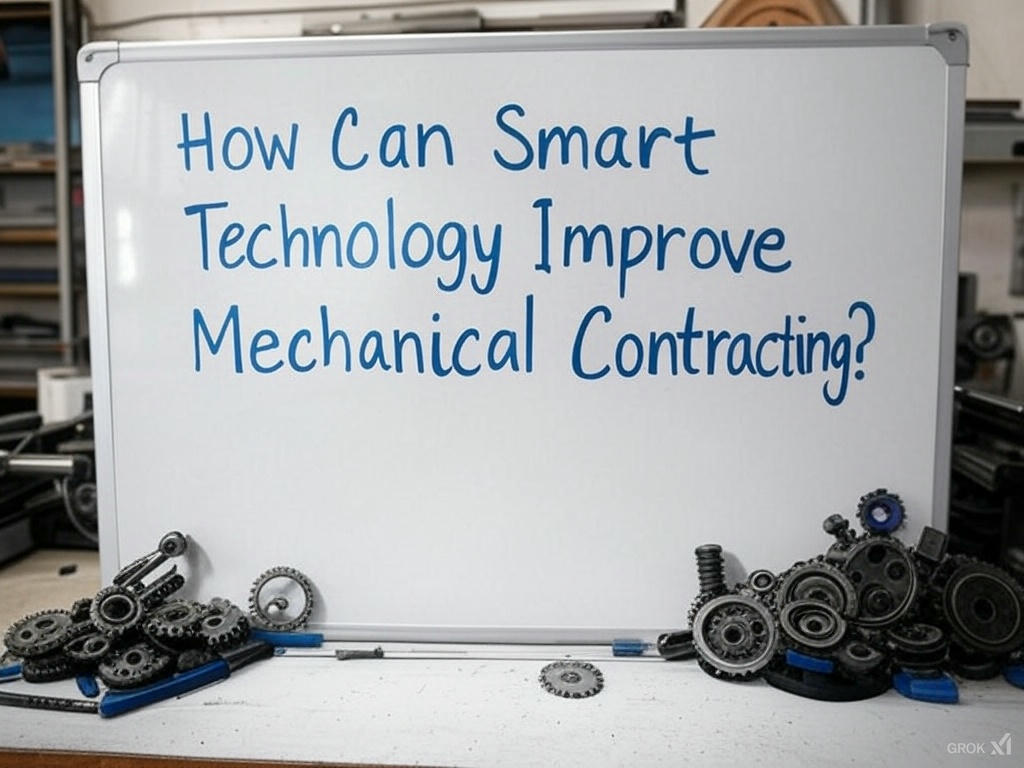Commercial mechanical contractors play a crucial role in constructing and maintaining heating, ventilation, air conditioning (HVAC), plumbing, and other mechanical systems in commercial buildings. These contractors ensure that businesses, hospitals, schools, and industrial facilities operate efficiently and safely. However, the industry faces various challenges that can affect project timelines, costs, and overall performance. Fortunately, there are effective solutions to mitigate these issues, such as leveraging an online mechanics course to upskill workers and enhance their ability to tackle complex projects with greater expertise.
Challenges in Commercial Mechanical Contracting
1. Skilled Labor Shortages
One of the biggest challenges in the commercial mechanical contracting industry is the shortage of skilled labor. The demand for experienced technicians, welders, and engineers is high, but there is a limited workforce available. This leads to increased labor costs and project delays.
2. Rising Material Costs
Fluctuations in the prices of materials like steel, copper, and aluminum significantly impact project budgets. Supply chain disruptions, global market trends, and economic conditions contribute to these rising costs, making it difficult for contractors to maintain profitability.
3. Project Delays and Scheduling Conflicts
Large-scale mechanical projects often involve multiple contractors working simultaneously. Scheduling conflicts, poor coordination, and unforeseen circumstances like weather conditions can delay project completion, affecting both contractors and clients.
4. Compliance with Regulations and Standards
Mechanical contractors must adhere to local, state, and federal building codes and safety regulations. Keeping up with changes in compliance requirements can be time-consuming and costly, especially for smaller contracting firms.
5. Equipment Maintenance and Downtime
Maintaining mechanical systems requires regular servicing and repairs. Unexpected equipment failures can result in costly downtime, causing inconvenience to businesses and increasing repair expenses.
Solutions to Overcome These Challenges
1. Investing in Workforce Development
To address the skilled labor shortage, companies can invest in apprenticeship programs, vocational training, and continuing education. Partnering with technical schools and trade organizations can help attract and retain qualified workers.
2. Strategic Procurement and Cost Management
Contractors can manage material costs by forming strong relationships with suppliers, bulk purchasing, and exploring alternative materials. Staying updated on market trends and planning can also help mitigate the impact of price fluctuations.
3. Advanced Project Management and Scheduling Tools
Utilizing project management software and scheduling tools can enhance coordination between different contractors. Implementing Building Information Modeling (BIM) technology allows for better planning, reducing errors and delays.
4. Staying Informed on Regulatory Changes
Contractors should regularly review and update their knowledge of regulations and building codes. Hiring compliance officers or consultants can help ensure that projects meet all legal and safety requirements.
5. Preventive Maintenance and Smart Technology Integration
Adopting predictive maintenance techniques using IoT (Internet of Things) sensors and automated monitoring systems can help detect potential issues before they lead to breakdowns. Implementing energy-efficient and smart HVAC systems can also reduce long-term maintenance costs.
The Role of Technology in Mechanical Contracting
Technology plays a critical role in modernizing the mechanical contracting industry. From digital blueprints to automated fabrication, advancements in technology improve efficiency, reduce waste, and enhance precision in construction projects.
Safety Measures and Best Practices
Ensuring workplace safety is essential in mechanical contracting. Proper training, use of personal protective equipment (PPE), and adherence to safety protocols minimize accidents and injuries on the job site.
Sustainability and Energy Efficiency Trends
With a growing emphasis on sustainability, mechanical contractors are incorporating energy-efficient HVAC systems, eco-friendly materials, and smart building technologies to reduce environmental impact and lower operational costs for clients.
Future Trends in Commercial Mechanical Contracting
The industry is evolving with innovations like modular construction, automation, and renewable energy solutions. Staying ahead of these trends ensures long-term success and competitiveness for mechanical contractors.
Commercial Mechanical Contractors Dallas
For businesses in Texas, commercial mechanical contractors in Dallas provide essential services for HVAC installation, plumbing, and maintenance. With the growing demand for sustainable and efficient mechanical systems, these contractors play a key role in ensuring businesses operate smoothly and in compliance with local regulations.
Pricing Details
The cost of hiring commercial mechanical contractors varies depending on the scope of the project, location, and materials used. On average:
- HVAC installation costs range from $10,000 to $100,000, depending on building size and system complexity.
- Plumbing services for commercial buildings typically range from $5,000 to $50,000.
- Routine maintenance and inspections may cost between $500 to $5,000 per service visit.
- Emergency repairs can vary widely, starting from $1,000 and increasing based on the severity of the issue. For an accurate quote, businesses should consult with a local contractor to evaluate specific requirements and obtain a detailed cost estimate.
Conclusion
Commercial mechanical contractors face significant challenges, from labor shortages to regulatory complexities. However, by investing in workforce development, leveraging technology, and adopting proactive strategies, these challenges can be effectively managed. The future of the industry depends on innovation, collaboration, and continuous improvement to ensure the seamless operation of commercial buildings worldwide.






